The uses and effects of technological change permeate through all of our systems, including our democracy. Yet given political polarization and uncertain legal rules, our current climate presents unique challenges to our ideas and values of democracy. How might we use and think about technology to better serve our democratic institutions?
Join Aspen Tech Policy Hub Fellows as they showcase their projects under the theme: Improving Democracy Through Technology. Following the presentations of the projects, California Supreme Court Justice Mariano-Florentino Cuéllar gave further remarks.
The projects presented are:
Combating Election Disinformation by Shining Light on Dark Ads: Every day, tens of millions of Americans view political advertisements on social media that disguise themselves as unpaid content, also known as “dark ads.” According to NYU researchers, more than half of Facebook pages from May 2018 until June 2019 that displayed U.S. political ads concealed the identities of their backers. Matthew Volk and Elizabeth Allendorf joined forces to develop a game that educates the public about dark ads, and to propose a series of actions that regulatory entities can take to increase transparency in this ecosystem.
Using Automated Advocates to Provide Legal Services at Scale: The United States faces a crisis in its civil courts, where more than 80% of low-income households lack adequate legal representation. A promising new class of technology tools (“Automated Advocates”) can help close that gap, but regulatory complexity about who may practice law make it difficult for companies to build these tools and for regulators to distinguish good actors from bad. Jessica Cole led a project to coalesce and define Automated Advocates in order to regulate and incentivize their use in civil courts.
People Powered Policy: It is difficult for cities to obtain real-time feedback from their constituents on impending policy decisions. At the same time, constituents from disenfranchised communities struggle to get the attention of elected officials to drive policy change. Amy Wilson led a project focused on the City of Oakland, California, that develops a strategy to encourage two-way iterative communication between city government and their constituents and embrace a digital transformation.
We were joined by:
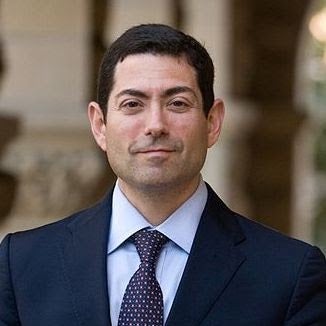 Justice Mariano-Florentino Cuéllar is a Justice of the Supreme Court of California and academic thought leader in the fields of administrative law, cyberlaw, public health and safety law, international affairs, and criminal law. Justice Cuéllar was previously the Stanley Morrison Professor of Law at Stanford Law School and the Director of Stanford’s Freeman Spogli Institute for International Studies where he expanded Stanford’s role in nuclear security research and policy, and launched university-wide initiatives on cybersecurity and global poverty. In 2009 and 2010, Cuéllar took a break from academia to serve as the Special Assistant to the President for Justice and Regulatory Policy at the White House Domestic Policy Council, where he led work on criminal and civil justice, public health, and immigration. In 2014, California Governor Jerry Brown nominated Justice Cuéllar to the California Supreme Court––he was given the highest possible rating by the California State Bar’s independent Judicial Nominations Evaluations Commission. Justice Cuéllar was elected to the President and Fellows of Harvard College in February 2019.
Justice Mariano-Florentino Cuéllar is a Justice of the Supreme Court of California and academic thought leader in the fields of administrative law, cyberlaw, public health and safety law, international affairs, and criminal law. Justice Cuéllar was previously the Stanley Morrison Professor of Law at Stanford Law School and the Director of Stanford’s Freeman Spogli Institute for International Studies where he expanded Stanford’s role in nuclear security research and policy, and launched university-wide initiatives on cybersecurity and global poverty. In 2009 and 2010, Cuéllar took a break from academia to serve as the Special Assistant to the President for Justice and Regulatory Policy at the White House Domestic Policy Council, where he led work on criminal and civil justice, public health, and immigration. In 2014, California Governor Jerry Brown nominated Justice Cuéllar to the California Supreme Court––he was given the highest possible rating by the California State Bar’s independent Judicial Nominations Evaluations Commission. Justice Cuéllar was elected to the President and Fellows of Harvard College in February 2019.
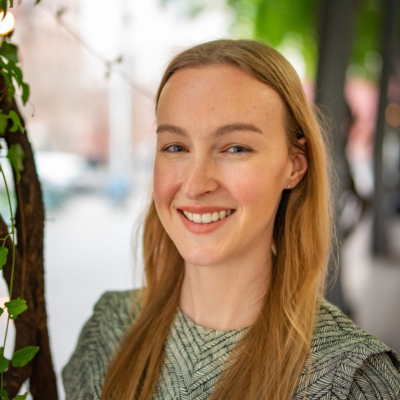 Elizabeth (Liz) Allendorf is an artificial intelligence engineer at Northrop Grumman specializing in natural language processing (NLP). During the last two years at Northrop, she spent the evenings studying for her Master’s degree in computer science from the University of Southern California, and graduated in December 2019. She also holds a B.A. in physics from the University of California, Los Angeles. In her free time she loves to read The New Yorker and hunt for the best taco in LA.
Elizabeth (Liz) Allendorf is an artificial intelligence engineer at Northrop Grumman specializing in natural language processing (NLP). During the last two years at Northrop, she spent the evenings studying for her Master’s degree in computer science from the University of Southern California, and graduated in December 2019. She also holds a B.A. in physics from the University of California, Los Angeles. In her free time she loves to read The New Yorker and hunt for the best taco in LA.
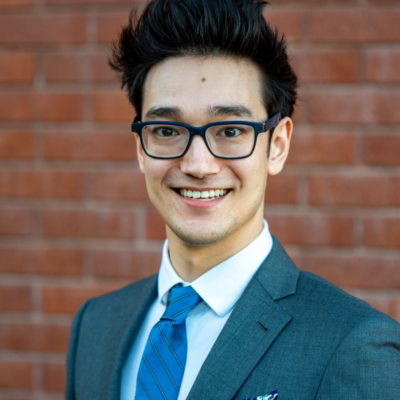 Matthew Volk is a senior engineer at Facebook, where he works on systems that address issues like misinformation, hate speech, and elections interference. Previously, he ran a chapter of the activist group STAND and worked with the Human Rights Foundation. Matthew has a BS/MS from Stanford, where he studied artificial intelligence and systems security. In his spare time, Matthew loves playing chamber music with his friends and going on hikes with his partner Erik.
Matthew Volk is a senior engineer at Facebook, where he works on systems that address issues like misinformation, hate speech, and elections interference. Previously, he ran a chapter of the activist group STAND and worked with the Human Rights Foundation. Matthew has a BS/MS from Stanford, where he studied artificial intelligence and systems security. In his spare time, Matthew loves playing chamber music with his friends and going on hikes with his partner Erik.
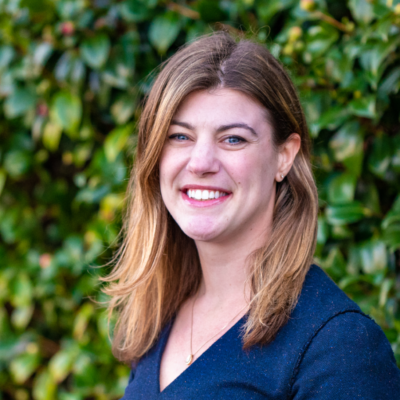 Jessica Cole is a civic technologist, formerly the Head of Innovation and Economic Development for the City of Walnut Creek, CA. She builds civic infrastructure across sectors: most recently as a Code for America Fellow, as a startup founder, and as Director of Outreach for ed-tech startup Panorama Education. Jessica holds an Urban Studies degree from Yale University, where she was a Yale Entrepreneurial Fellow and a Zigler Fellow in Child Development and Social Policy. Find her hosting citizen onboarding workshops, organizing poetry jams, or co-designing behavioral interventions for her friends.
Jessica Cole is a civic technologist, formerly the Head of Innovation and Economic Development for the City of Walnut Creek, CA. She builds civic infrastructure across sectors: most recently as a Code for America Fellow, as a startup founder, and as Director of Outreach for ed-tech startup Panorama Education. Jessica holds an Urban Studies degree from Yale University, where she was a Yale Entrepreneurial Fellow and a Zigler Fellow in Child Development and Social Policy. Find her hosting citizen onboarding workshops, organizing poetry jams, or co-designing behavioral interventions for her friends.
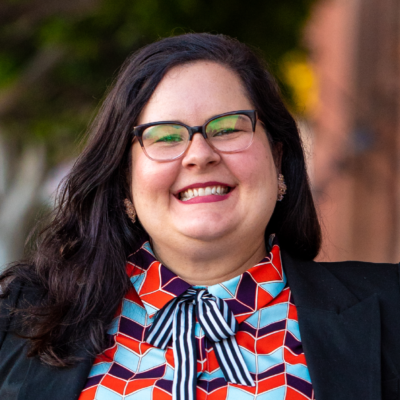 Amy Wilson was most recently the managing director of MACH37, the premier accelerator for cyber startups. She previously formed the language for 21st century delivery-driven government on Innovation.gov, founded the Better Government Movement (an inclusive space where public servants can grow their creative capacity), and was a White House Presidential Innovation Fellow across two administrations. Amy has a Bachelor of Arts in Communications from University of Maryland, College Park. She’s writing her first book entitled Empathy for Changemakers, to be released in Spring 2020.
Amy Wilson was most recently the managing director of MACH37, the premier accelerator for cyber startups. She previously formed the language for 21st century delivery-driven government on Innovation.gov, founded the Better Government Movement (an inclusive space where public servants can grow their creative capacity), and was a White House Presidential Innovation Fellow across two administrations. Amy has a Bachelor of Arts in Communications from University of Maryland, College Park. She’s writing her first book entitled Empathy for Changemakers, to be released in Spring 2020.
This conversation is part of the Aspen Tech Policy Hub’s Demo Day Video Series. Please visit our website to learn more about our series and RSVP for other events.

